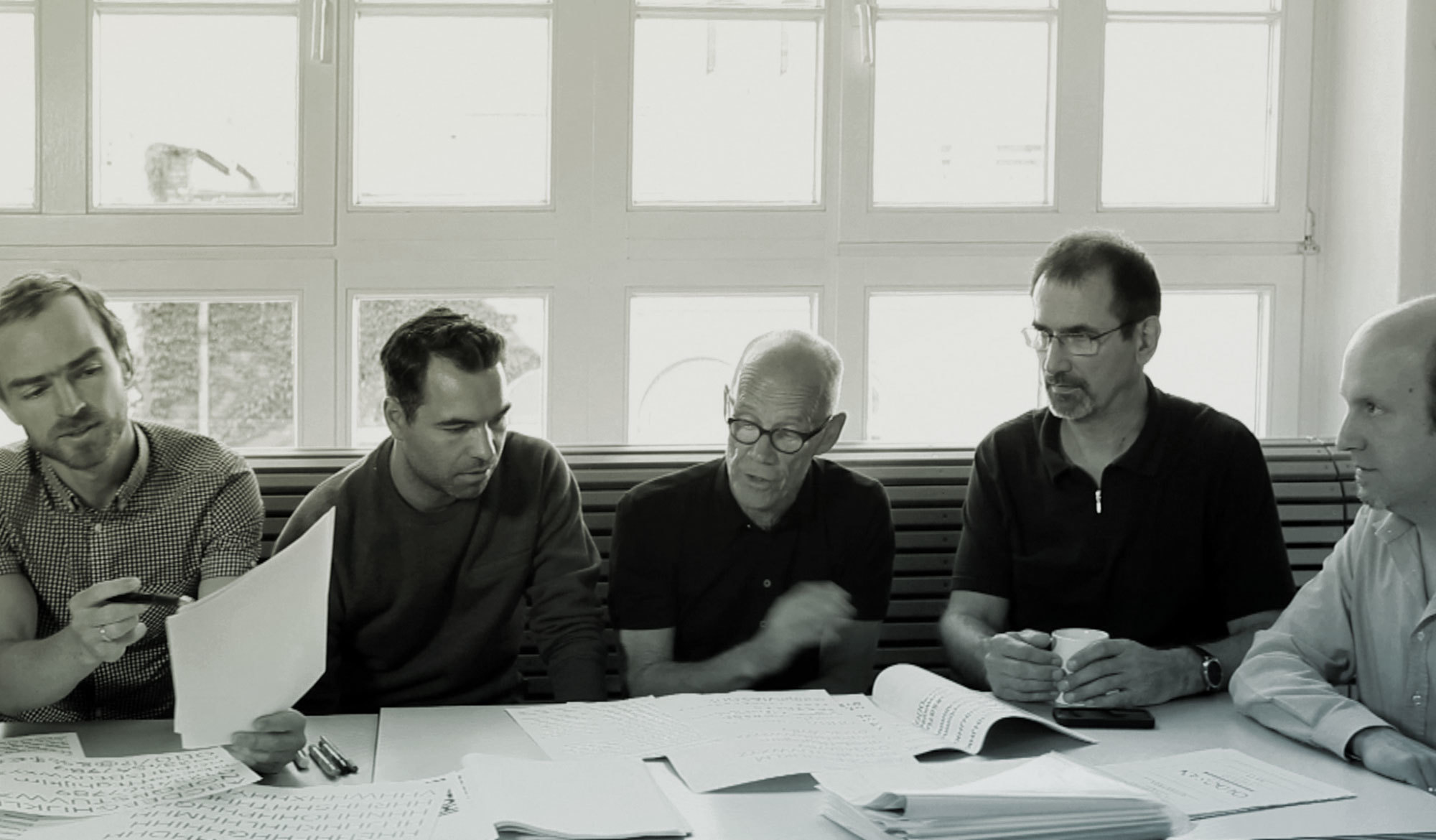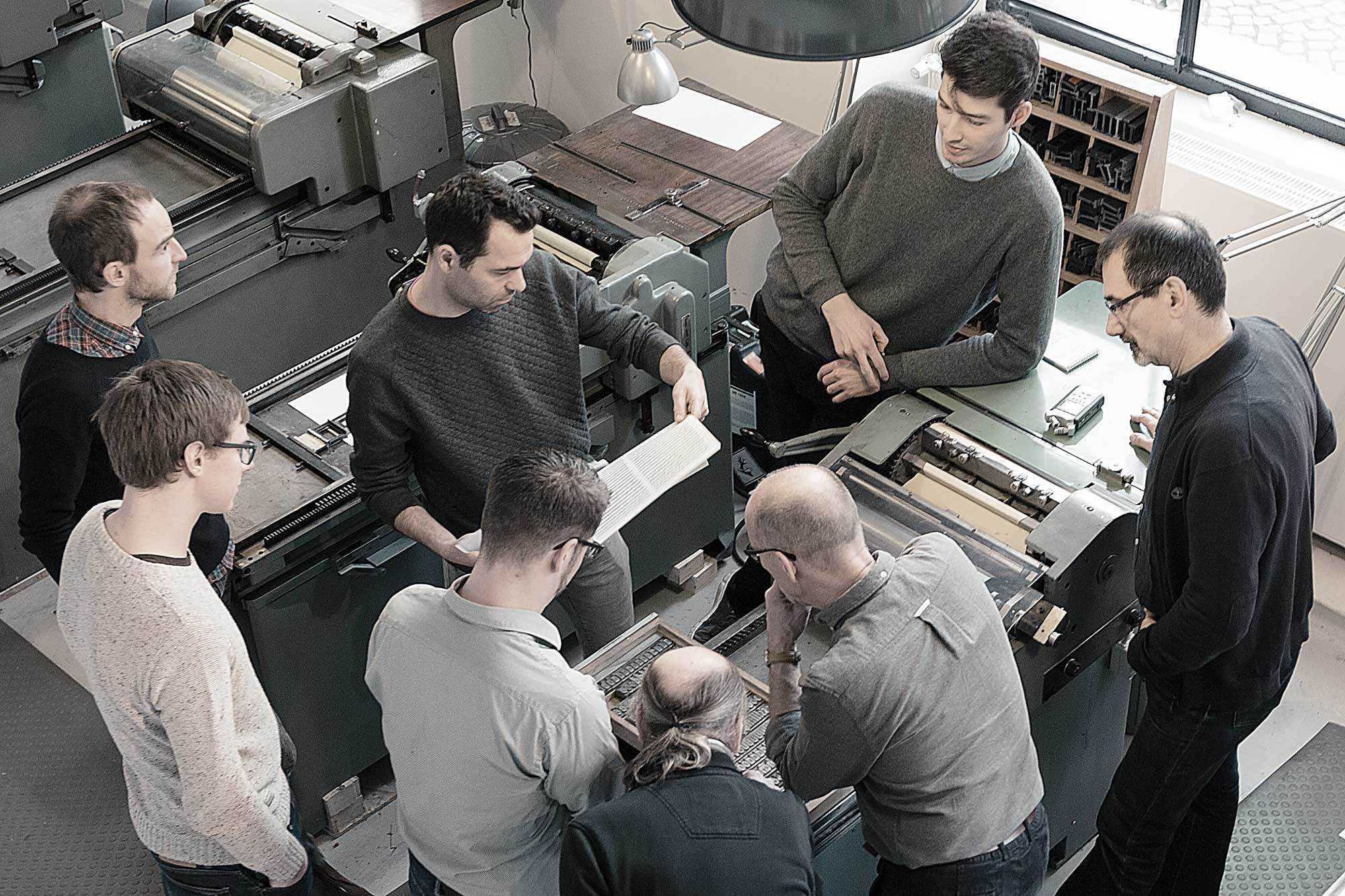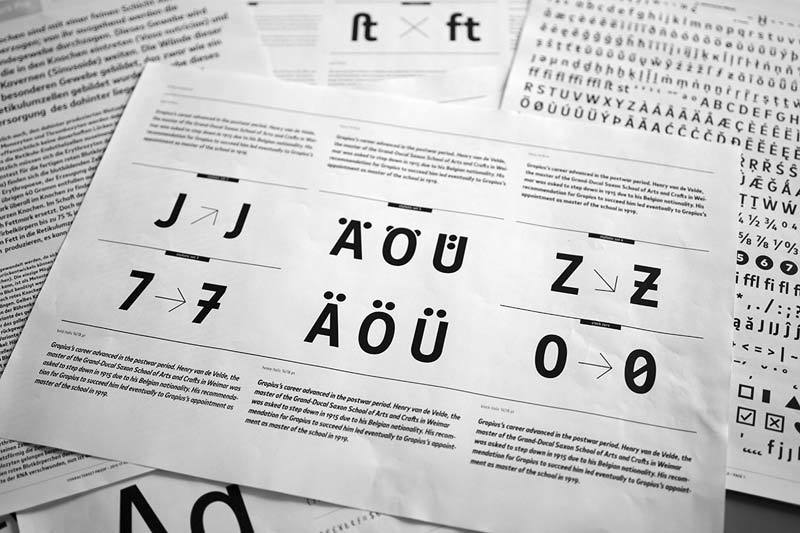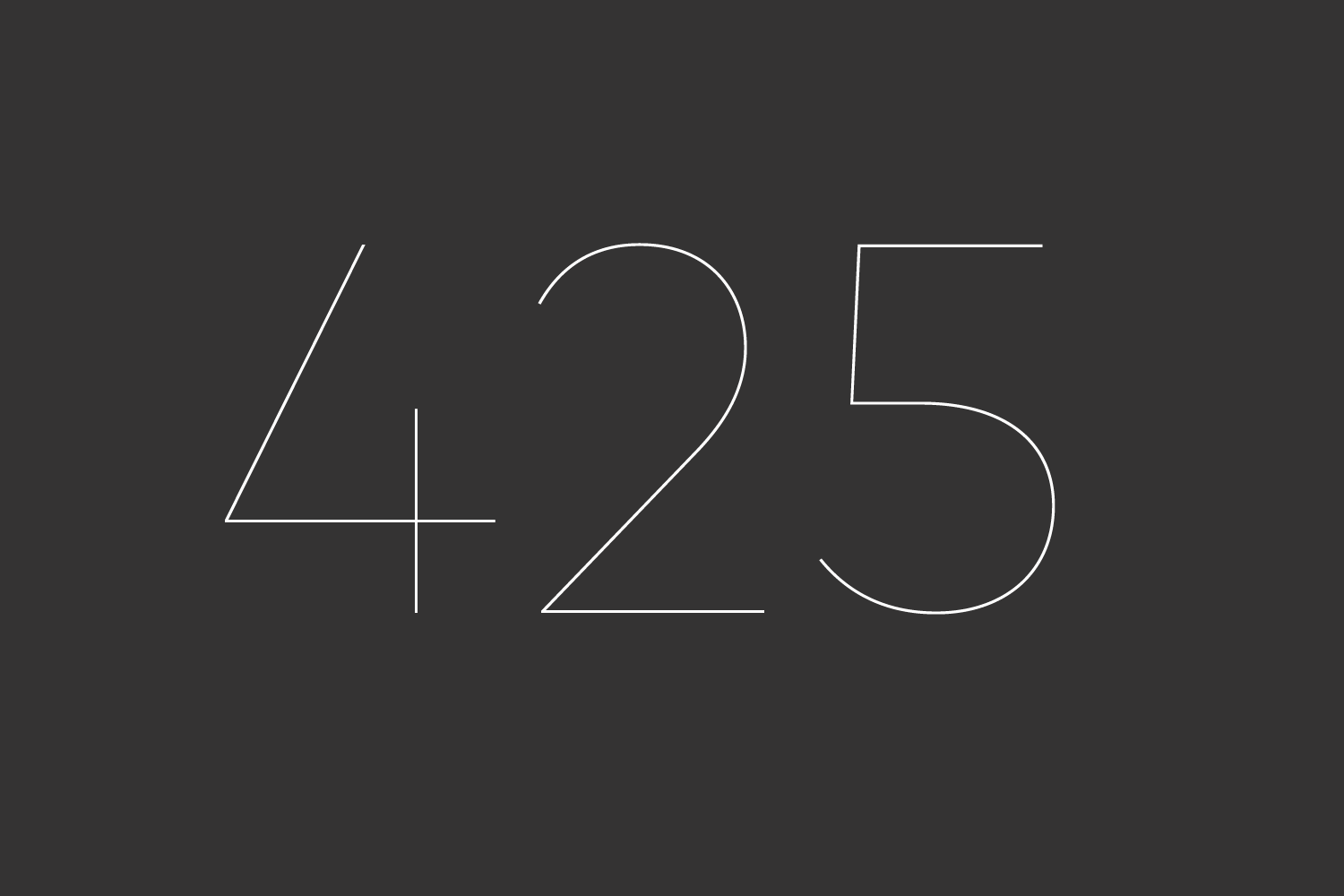FF Mark is one of the most iconic geometric sans serif typefaces of our time. Created by German type designers Hannes von Döhren, Christoph Koeberlin, and the FontFont Type Department, this versatile family draws on historical examples from German geometry in the 1920s. With additional creative input of Erik Spiekermann, they created a contemporary interpretation of classic German geometric sans: FF Mark is available with 61 styles and many weights ranging from Hairline to Ultra.

STADTAUTOBAHN
Reizvolle Erscheinung
UNGEHEUERLICH
Regeln und Gesetze
FERTIGPRODUKT
Erster Wegbereiter
SUPREMATISMUS
Idee des Fortschritts
KUNSTKRITIKER
Gestaltungsprinzip II
INSZENIERUNG
Primary Structures
NEUZEITLICHES
Se Germanetric 1920
AKTENTASCHEN
Schwarzes Quadrat
NATURDENKMAL
Stilistische Elemente
Bleistift 2Bi
Lorem ipsum dolor sit amet, consetetur sadipscing elitr, sed diam nonumy eirmod tempor invidunt ut labore et dolore magna aliquyam erat, sed diam voluptua. At vero eos et accusam et justo duo dolores et ea rebum. Stet clita kasd gubergren, no sea takimata sanctus est Lorem ipsum dolor sit amet.
Lorem ipsum dolor sit amet, consetetur sadipscing elitr, sed diam nonumy eirmod tempor invidunt ut labore et dolore magna aliquyam erat, sed diam voluptua. At vero eos et accusam et justo duo dolores et ea rebum. Stet clita kasd gubergren, no sea takimata sanctus est Lorem ipsum dolor sit amet.
Lorem ipsum dolor sit amet, consetetur sadipscing elitr, sed diam nonumy eirmod tempor invidunt ut labore et dolore magna aliquyam erat, sed diam voluptua. At vero eos et accusam et justo duo dolores et ea rebum. Stet clita kasd gubergren, no sea takimata sanctus est Lorem ipsum dolor sit amet.

FF Mark is an original contemporary design that serves today’s needs. While some of other geometric historical typefaces are charming and elegant they may appear quirky in single weights and are not consistent throughout the typographic system.
In the capital letters, FF Mark willfully avoids the capitalis monumentalis proportions and instead consistently represents wide letter shapes with the x-height in good balance. Overall, the typeface bears low contrast and even though very little stroke modulation has been applied to the letter shapes it maintains excellent legibility even in smaller type sizes.

It extends to ten weights with more than a thousand characters each, allowing for a wide range of possibilities in creating typographic hierarchy. Besides the more modern FF Mark regular, the typeface is equipped with a book weight to support rather traditional text appearances. This feature is on par with Neuzeit-Buchschrift, which was available in 6–12 pt. While the oblique fonts in some older examples of the geometric sans do not fully match the rest of the typeface (and thus can seem disturbing), the FF Mark italic weights are more harmonized and retain the geometric character just as much as their upright counterparts. What’s more, FF Mark has small capitals. Within this large system of weights, very little optical corrections or compromises have been made to keep the type as consistent as possible.
FF Mark takes on ideas that have worked well just as much as it learns from defects of its historical examples. What it does, is successfully perform how these challenges can be overcome. True to the geometric tradition, but better, FF Mark is a typeface of our time.



A font of today’s needs has to include more than just the alphabet and some punctuation. Besides a big number of accented letters, making sure that the typeface has a good language support, a font should include several features for excellent typographic work joining forces with the layout applications of the time and of course the user. Here is a selection of what this font family has to offer under the hood.
Die Präzise Mathematik
Small Caps are uppercase characters set at the same height and weight as the lowercase characters or text figures. They are used in text emphasize or typographically differentiate passages beside the italics. Professional designed Small Caps are not simply scaled-down versions of the capital letters – they are designed to work with the lowercase letters and have the same stroke weight.
Abgabezeit
Besides the standard letters a font sometimes contains several versions of a letter called alternates. You can exchange the alternate with the standard letter by selecting it through the Opentype feature panel and every letter of the stylistic set will be exchanged. Often this results in a totally different optical appearance of the typeface.
ÄTSCH, ÖKO & ÜBER
A special features are the Umlaut characters for setting capital words or headlines. FF Mark contains versions of these accented letters that align with the other letters to keep the line spacing tight.
AEG in 1883 in Berlin
When lining figures are used in a reading text they often produce a visual stretch in the text and disturb the grey value. It has the same effect if you use ALL CAPS in a text. One solution could be to make the numbers slightly smaller and give them some more space in-between. The other, more elegant way is to use the old style figures, they have ascenders and descenders like the lower case letters and will fit seamlessly in the text.
1129,39
2576,39
In addition to the normal lining figures, the fonts contain a set of tabular figures. This means that all numbers have the same width, which is useful for setting up invoices, tables or every other task where the figures should have a structured appearance among themselves.
We need 1/2 ml of fluid!
If fractions are needed anywhere an OpenType code makes sure that if you type any numbers combined with a slash between a fraction will automatically be substituted.
C2H5OH
A subscript is a character that is set slightly below the normal line of type. They are used in formulas, mathematical expressions, and specifications of chemical compounds and isotopes, but can have many other uses as well. These characters are not simply ordinary characters reduced in size – to keep them visually consistent with the rest of the font, they are slightly heavier than a reduced-size character would be.
Hello!2
A superscript is a character that is set slightly above the line of type. It has the same weight and size like a subscript character. They are also used in formulas, mathematical expressions and text references, but can have many other uses as well.
Additionally to the letters this font family contains a big set of extras fitting to the characteristics of the typeface. The user can combine text and these elements keeping a homogenous design language. Here is a small selection.
FF Mark is a type system with 61 fonts in total: Three widths with 20 styles each plus one ultra fat style for posters and big headlines. With this range FF Mark can solve nearly any design challenge. → Check out FF Mark Condensed.
Afar, Afrikaans, Albanian, Basque, Belarusian, Bislama, Bosnian, Breton, Catalan, Chamorro, Chichewa, Comorian, Croatian, Czech, Danish, Dutch, English, Esperanto, Estonian, Faroese, Fijian, Filipino/Tagalog, Finnish, Flemish, French, Gaelic, Gagauz, German, Gikuyu, Gilbertese/Kiribati, Haitian-Creole, Hawaiian, Hungarian, Icelandic, Indonesian, Irish, Italian, Javanese, Kashubian, Kinyarwanda, Kirundi, Latin, Latvian, Lithuanian, Luba/Ciluba/Kasai, Luxembourgish, Malagasy, Malay, Maltese, Maori, Marquesan, Moldovan/Romanian, Montenegrin, Nauruan, Ndebele, Norwegian, Oromo, Palauan/Belauan, Polish, Portuguese, Quechua, Romanian, Romansh, Sami, Samoan, Sango, Serbian, Sesotho, Setswana, Seychellois-Creole, Swazi, Silesian, Slovak, Slovenian, Somali, Sorbian, Sotho, Spanish, Swahili, Swedish, Tahitian, Tetum, Tok-Pisin, Tongan, Tsonga, Tswana, Turkish, Turkmen, Tuvaluan, Uzbek, Wallisian, Walloon, Welsh, Xhosa, Zulu
Enjoy this typeface?
Buy on MyFontsOther buying Options: Fontshop.com

